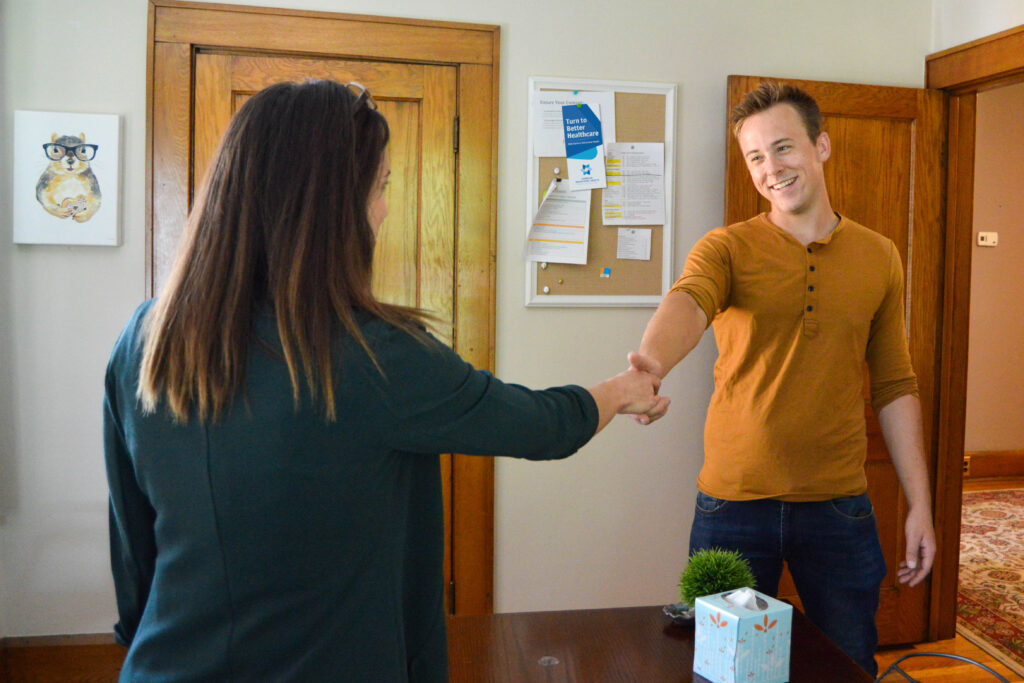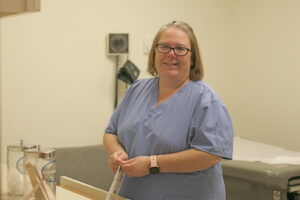What is a Case Manager?
At Barbour Community Health Association, we not only prioritize a patient’s physical health, but also their mental wellness.

Mental health is so, so important to a person’s daily life – whether it’s maintaining relationships, creating healthy family and work life balance, improving emotional health or overall quality of life.
That’s why we ensure we have the best behavioral health team that offers care and compassion to each individual who walks through the door. Our team also includes expert therapists who are specialized in various behavioral health treatment areas, including: anxiety, depression, mood disorders, substance abuse and many more mental health needs.
Our team also includes case managers who maintain a rapport and working relationship with each patient who may identify with a mental health concern.
Let’s learn a bit more about case managers and their important role in the behavioral health field.
Why are case managers needed?
Case managers often assist patients in connecting them with tools and resources that can benefit and improve their quality of life. They assist in the very important process of managing care to ensure that the patients’ individual needs are being met in the best way possible. They work directly with each patient from the beginning of behavioral health treatment services until completion.
What are our case managers responsibilities?
Case managers help in various ways, including:
– Providing patients with resources, which may include linkage and referral to outside community, treatment and support agencies.
– Coordinating patient appointments.
– Providing compassion and support to all patients via telephone or in person.
– Assisting with coordination of patient health insurance benefits.
– Working with the patient’s licensed health care provider to ensure behavioral health treatment efficiency and service delivery.
What is the difference between a case manager and a therapist?
Barbour Behavioral Health case managers are the initial point of patient contact, and provide support and information regarding available treatment options. Often case managers are referred to as the safety net that helps to catch patients who are in need. They are appointed to a patient to help assist in a smooth recovery throughout treatment with their licensed provider. Case managers communicate with patients in between provider appointments as needed for additional support.
A therapist works with the patient in identifying areas of concern, symptoms, diagnosis and strengths in order to develop personalized treatment goals which can be achieved within the therapeutic process. A therapist helps the patient in treating the underlying cause of symptoms for increased quality of life through various evidenced-based clinical practices, or interventions.
Both aim to ensure that patients are working toward achieving the best version of themselves.
What is the education of our case managers?
Barbour Behavioral Health case managers have a minimum 4-year undergraduate college degree in a human services related field.
At BCHA, we value our case managers, who are dedicated to our patients and their wellbeing.
For more information on behavioral health services, please call 304-823-4000.
Barbour Community Health Association to Celebrate 50 Years Of the Belington Medical Clinic
Barbour Community Health Association to Celebrate 50 Years Of the Belington Medical Clinic BELINGTON, WV (Sept. 28, 2023) – Barbour Community Health Association (BCHA)
HPV Vaccine Myths Busted!
HPV Vaccine Myths Busted! Human Papillomavirus (HPV) is the most common sexually transmitted infection in the US. HPV is a virus that can lead
Q&A WITH OUR NEW CHIEF MEDICAL OFFICER, JOHN HENDERSON, MD
Q&A with our new Chief Medical Officer, John Henderson, MD Barbour Community Health Association is delighted to announce the promotion of Dr. John Henderson,





 I don’t know where to start.
I don’t know where to start. Barbour Community Health Association
Barbour Community Health Association

 4. Boost in confidence.
4. Boost in confidence.